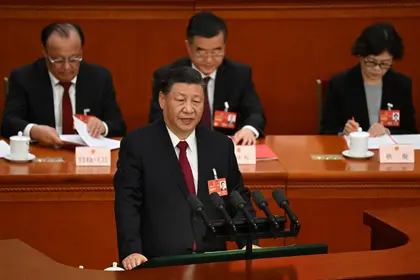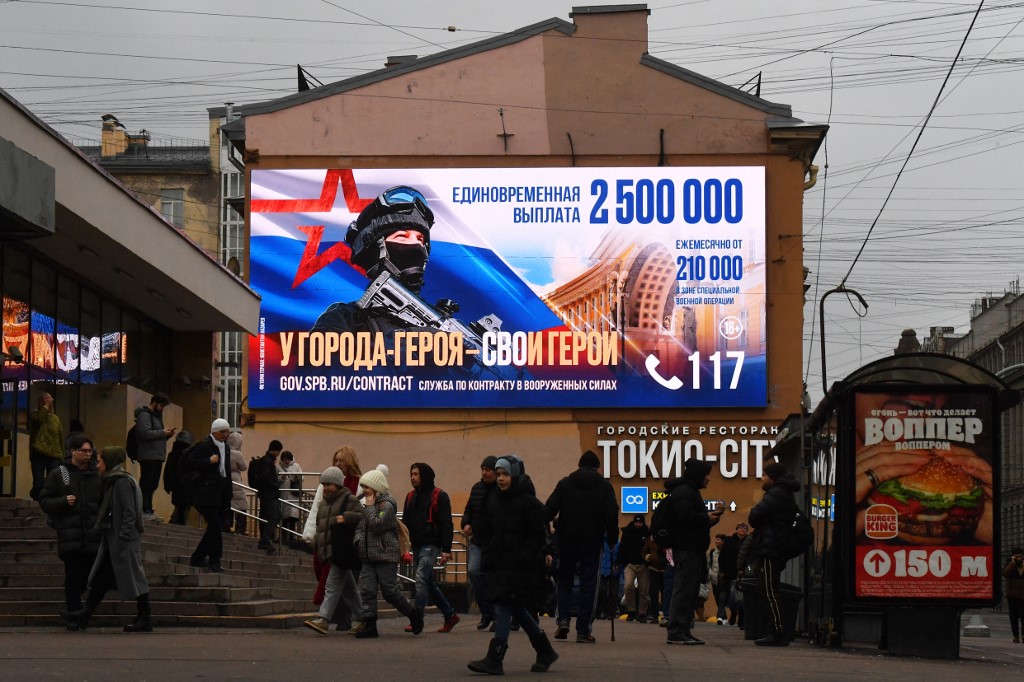Chinese President Xi Jinping will make a state visit to Moscow next week, where he will hold talks with his strategic ally Vladimir Putin just over a year into Russia's war in Ukraine.
Xi will be in Russia from Monday to Wednesday, Beijing's foreign ministry and the Kremlin said on Friday.
JOIN US ON TELEGRAM
Follow our coverage of the war on the @Kyivpost_official.
Recently reanointed for a landmark third term, Xi last visited Russia in 2019. Putin attended the opening ceremony of the Winter Olympics in Beijing last year and the two leaders also met at a regional security gathering in Uzbekistan in September. Xi will conduct "an in-depth exchange of views with President Putin on bilateral relations and major international and regional issues of common concern", Chinese foreign ministry spokesman Wang Wenbin said on Friday.
The visit will "promote strategic coordination and practical cooperation between the two countries, and inject new impetus into the development of bilateral relations", Wang said.
"At present, changes not seen in a century are rapidly evolving, and the world has entered a new period of turmoil," he said. "As... important major countries, the significance and influence of China-Russia relations far exceed the bilateral scope."
Also on Friday, the Kremlin said the two presidents would speak about "strategic cooperation" and "discuss deepening the exhaustive partnership and strategic cooperation between Russia and China".
It added that "important bilateral documents" were expected to be signed. The visit comes just over a year after Russia invaded Ukraine, kicking off a war that has isolated Moscow on the international stage.

‘We’re Going to Be Slaughtered’ – Record $40K Payouts in Russia Attract Contract Soldiers to Assault Units
China, a major Russian ally, has sought to position itself as a neutral party in the conflict, urging Moscow and Kyiv to resolve it through negotiations.
In a 12-point position paper on the war last month, China called for dialogue and respect for all countries' territorial sovereignty. But Western leaders have repeatedly criticised Beijing for failing to condemn the invasion, accusing it of providing Moscow with diplomatic cover for its war.
The United States has accused China of mulling arms shipments to support Russia's war – claims Beijing has strongly denied. Ukraine's President Volodymyr Zelensky said in February he was planning to meet Xi after Beijing called for talks.
The Chinese foreign ministry did not confirm on Friday whether he planned to do so. However, the two nations' foreign ministers held a phone call on Thursday, the first since China's Qin Gang took office. Qin urged Kyiv and Moscow to restart peace talks "as soon as possible", adding that "China is concerned that the crisis could escalate and get out of control", according to an official readout.
His Ukrainian counterpart Dmytro Kuleba said the call included discussion of "the significance of the principle of territorial integrity", without giving details. Formerly socialist allies with a tempestuous relationship, in recent years China and Russia have deepened cooperation in the economic, military and political sectors as part of what they call a "no limits" partnership.
Both sides have frequently emphasised the close relationship between Putin and Xi, who began a third five-year term as president this month in a break with longstanding precedent. Xi, 69, also helped spur a China-mediated deal to restore ties between Saudi Arabia and Iran last week.
"Whether (China) is actually stepping up its efforts to play peacemaker in a meaningful way will depend on the substance of what it proposes during meetings with leaders from Ukraine and Russia," said Ja-Ian Chong, an associate professor at the National University of Singapore.
"Their previous peace plan was more about general principles than actionable proposals," the specialist in Chinese foreign policy told AFP.
You can also highlight the text and press Ctrl + Enter










